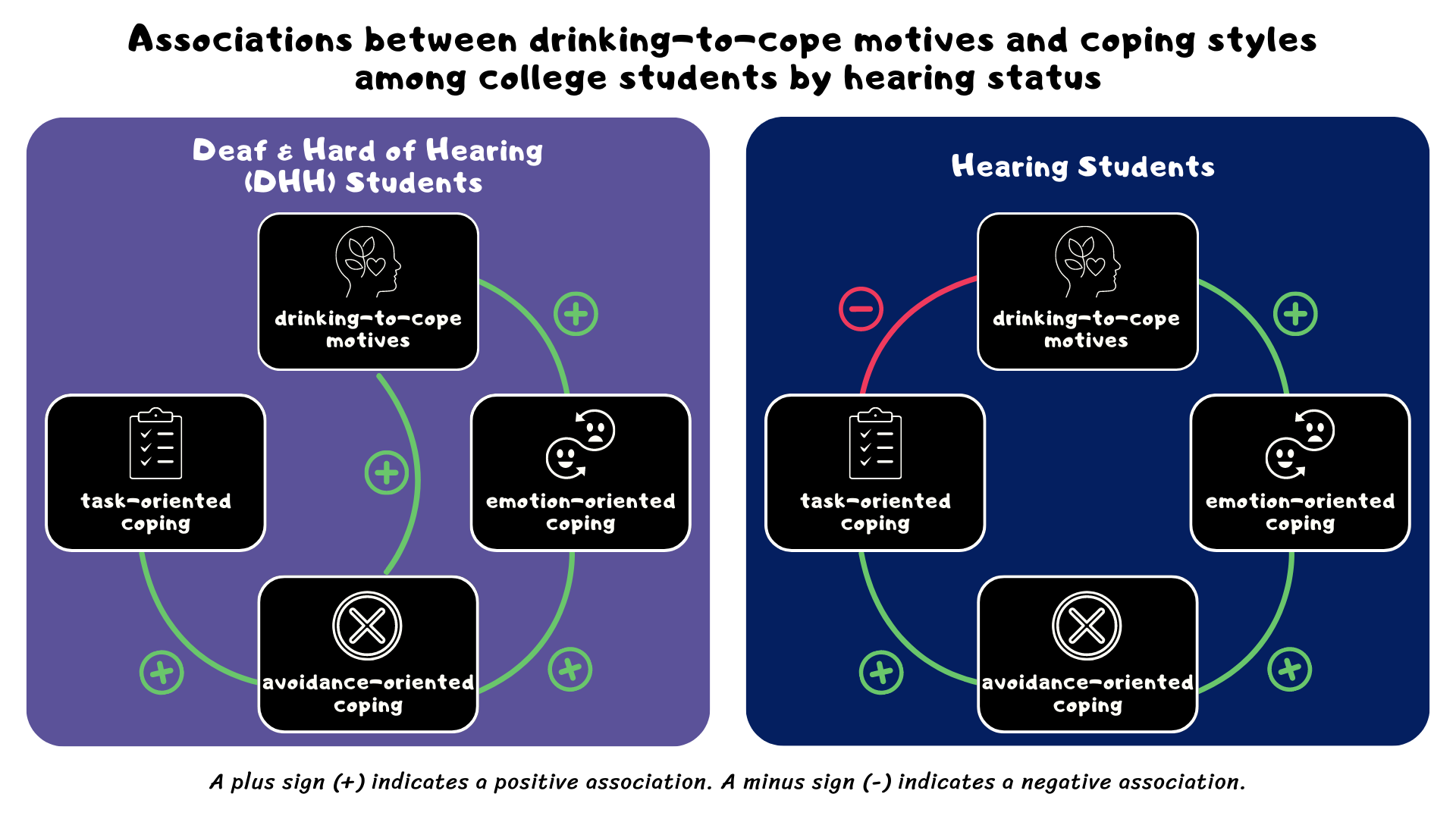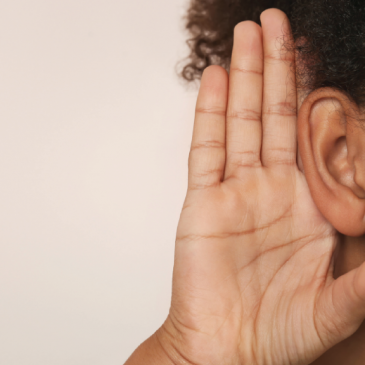Deaf and hard of hearing (DHH) students face unique everyday stressors, such as navigating communication barriers, requesting and managing academic accommodations (e.g., interpreter or notetaker services), and adapting to hearing-centered classroom environments. These stressors may contribute to increased risk for drinking to cope, which is associated with alcohol-related problems. This week, The DRAM reviews a study by Joseph S. Baschnagel and Justin S. Bell that compared DHH and hearing college students’ alcohol use, drinking-to-cope motives, and coping styles.
What was the research question?
How do DHH and hearing college students differ in terms of alcohol use, drinking-to-cope motives, and coping styles?
What did the researchers do?
Between 2014 and 2017, the researchers surveyed 475 undergraduate students, with one in four identifying as deaf or hard of hearing. Survey measures included the Desired Effects of Drinking (DEoD) Scale, Coping Inventory for Stressful Situations (CISS), and Alcohol Use Disorders Identification Test (AUDIT) to assess for drinking-to-cope motives, general coping styles, and alcohol use, respectively. The researchers then ran correlation analyses and t-tests to look for associations and compare the two groups of students (DHH and hearing).
What did they find?
There was no difference in alcohol use between DHH and hearing students, but DHH students reported greater drinking-to-cope motives than hearing students. Associations between drinking-to-cope motives and coping styles varied by hearing status (see Figure). Compared to hearing students, DHH students reported higher levels of emotion-oriented and avoidance-oriented coping styles, which were both positively associated with drinking-to-cope motives among this group.

Figure. Associations between drinking-to-cope motives and coping styles among college students by hearing status. A green path with a plus sign (+) indicates a positive association. A red path with a minus sign (-) indicates a negative association. No path means no or negligible direct association. Click image to enlarge.
Why do these findings matter?
DHH students are more likely than hearing students to want to drink to cope with distress and thus may have an increased risk of experiencing negative consequences associated with drinking to cope, such as emotional dysregulation and distress. Among DHH students, task-oriented coping was not associated with drinking to cope but was the least reported coping style, so strengthening task-oriented coping may help lower drinking-to-cope motives among DHH students. Education about healthy coping strategies that is tailored and accessible to DHH students should be explored further as a possible intervention to reduce alcohol use among this population, as is making the college environment more accessible to students with special needs.
Every study has limitations. What are the limitations in this study?
The researchers combined deaf students and hard of hearing students into one group to have a large enough sample for analysis, but deaf students’ experiences with drinking and coping may differ from hard of hearing students’ experiences. The study also did not ask DHH participants whether or not they identify with Deaf culture. There may be differences in drinking and coping between Deaf and non-Deaf identifying DHH students, which should be explored in future research.
For more information:
The National Deaf Center on Postsecondary Outcomes provides resources to support deaf and hard of hearing students, including a Student Advocacy Toolkit. The National Institute on Alcohol Abuse and Alcoholism has tips and resources for people struggling with problem drinking. For additional drinking self-help tools, please visit our Addiction Resources page.
— Caitlyn Matykiewicz, MPH
What do you think? Please use the comment link below to provide feedback on this article.




